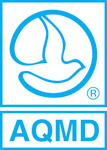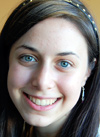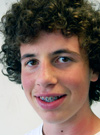Small steps to clean air—Part 2
When we talked to the Air Quality Management District about writing about air pollution, we wanted to know how teens could help reduce pollution. We were excited to learn that there’s a lot that teens can do. Driving less is the biggest thing you can do because exhaust from cars and other vehicles is responsible for more than half of the smog in our region. There are other steps you can take, too. Using less energy helps because some of the energy used to power electronics, turn on lights and heat water comes from air-polluting power plants. Another thing you can do is unplug TVs, computers and phone chargers when you’re not using them because electronics that are turned off but plugged in still use a little energy. So we challenged our staff to drive less and use less energy for one week. They all said that they think they can keep it up.
When I leave for school in the morning, I see exhaust coming from buses and cars. It’s upsetting that more isn’t being done to make the earth a cleaner place. I used this opportunity to make my actions more earth-friendly.
The day I started the challenge, I was about to go to sleep when I remembered that my phone was on. I jumped out of bed to turn it off. I didn’t want to waste the phone’s battery because then I would have had to charge it the next day.
When I woke up the next day, I unplugged my electric blanket from the wall socket. Before I started the challenge, I learned that appliances use energy even when they’re turned off. I continued to unplug my electric blanket in the morning for the rest of the week. It wasn’t always easy to remember to do because sometimes I would be in a rush for school.
Before the challenge, I would carpool with my neighbor to school about once a week if my dad couldn’t take me. During the challenge, I carpooled three days. I had to get up 10 minutes earlier because she leaves earlier, but overall it was easy to do. On the last day, I rode my bike a mile and a half to the mall instead of getting a ride. I was proud of myself because I got exercise, and I helped the earth!
I will keep unplugging my electric blanket, carpooling and riding my bike more often. They were really easy to do. I feel proud that I’m doing more to help the environment and cut air pollution.
Julia Waldow, 16, Beverly Hills HS
 |
 |
 |
l
I went into the challenge focusing on a few goals because I felt if I didn’t pinpoint what I wanted to change in my daily routine, I wouldn’t end up changing anything at all. I wanted to use natural sunlight more instead of electricity at home, minimize the number of car trips my family took and unplug my electronic devices when I wasn’t using them.
My brother goes to a different school from my sister and I. My mom takes my brother to the bus stop at 6:30 while I don’t leave for school until 7:20. My brother’s bus stop is on the way to my school, but because it would require me to wake up 30 minutes earlier, I never drive him. And even though my sister and I go to the same school, I get out at 3:30 and she finishes at 4:30 (My mother usually picked her up). I decided to start driving my brother to his bus stop in the morning and waiting for my sister after school. After one day of getting up early to drive my brother to the bus stop and waiting an hour after school for my sister, I was tired. I realized I set goals that were not realistic with my schedule. Spending an extra two hours of my time trying to cut down on car trips cut into my sleep time and made me more irritable since I didn’t have as much time to relax at home after school. Instead, I decided to focus on the other two goals.
On Saturday, I started charging my laptop only when I was using it instead of leaving it plugged in while I was away. I also began unplugging my electric toothbrush after I finished brushing my teeth in the morning and night. On Sunday, I took my energy conserving infatuation a step further and woke up 15 minutes earlier than usual, at 8 in the morning, to open every blind in my house. I thought if it was already bright enough in the house when everyone else woke up, they would not turn on any lights. I thought it was a fool-proof plan, but I was wrong.
One day I screamed at my sister when I caught her with the lights on and the blinds, that I had previously opened, closed. “Don’t you care at all?” I asked. “It’s too bright outside,” she said, and went back to her homework. It was frustrating fact that my family did not make an effort to help out and conserve energy as well. I tried my hardest to remind them about turning off their lights, but nothing seemed to work.
This challenge opened my eyes to how much energy my family uses for no reason. I learned how important it is to do my part in helping conserve energy and help others as well in conserving energy because they won’t do it themselves, and it still needs to be done.
Kiera Peltz, 17, CHAMPS (Van Nuys)
 |
 |
l
One of my goals was to try to take shorter showers so I was using less hot water. I’m ashamed to admit it, but usually my showers take about 20 to 30 minutes. My goal was to cut my shower time down to five minutes. I failed. Miserably. I would set alarms and tell my parents to yell at me when I was taking too long, but despite all of this, I would still end up standing uselessly under the showerhead. The warm water running felt so good. Usually, it was only after my alarms went off that I would actually start showering. By the end of the week though, I had managed to cut my showers down to 10 or 15 minutes, which still isn’t great, but is better than before. Slightly.
I also got into the habit of turning off lights and unplugging appliances after I used them. Any time I finished using a toaster, lamp, phone charger, computer, or a light I immediately unplugged it. One time I accidentally turned the lights off on my dad as he was doing dishes. “It’s kind of hard doing dishes with the lights off,” he joked.
Also, before the challenge, when I did homework, I would usually work in a separate room from the rest of my family. But for the challenge, I tried to work in the same room as someone else, so I didn’t have to use an extra light. And, although I would never admit it to my parents, I actually ended up working more efficiently when I was in the same room as another person.
I had fun doing the challenge. I realized that doing small things, like unplugging the toaster after using it isn’t that difficult.
Aaron Schwartz, 15, Gabrielino HS
 |
 |
 |
Click here to read:
Brian’s story about how our smoggy air affects his asthma.
l
 This special package is funded by the South Coast Air Quality Management District. Los Angeles has some of the dirtiest air in the country, which means that many days we’re breathing in smog that is bad for our health. What is smog? Smog refers to all the pollutants in the air. There are several air pollutants, including some that are colorless (so you can’t always tell how smoggy the air is just by looking at it). Driving is a big source of air pollution. Other sources are power plants, emissions from businesses and dust. Los Angeles air has gotten cleaner, but there were still 100 days last year when the air quality was not healthy. In this special package you can learn more about smog, including what you can do to help reduce pollution.
This special package is funded by the South Coast Air Quality Management District. Los Angeles has some of the dirtiest air in the country, which means that many days we’re breathing in smog that is bad for our health. What is smog? Smog refers to all the pollutants in the air. There are several air pollutants, including some that are colorless (so you can’t always tell how smoggy the air is just by looking at it). Driving is a big source of air pollution. Other sources are power plants, emissions from businesses and dust. Los Angeles air has gotten cleaner, but there were still 100 days last year when the air quality was not healthy. In this special package you can learn more about smog, including what you can do to help reduce pollution.










